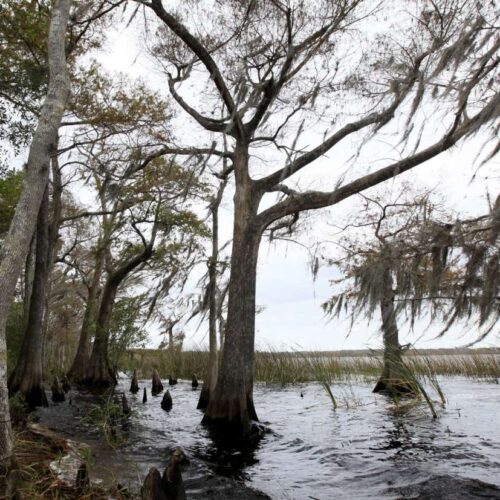Introduction
A federal court has directed that North Carolina’s Waccamaw River watershed receive $1 million in environmental preservation projects, one piece of a broader federal effort to protect wetlands and enforce the Clean Water Act.
The new case centers on Freedman Farms Inc., a corporate hog farm in Columbus County, N.C.
In February, the company was sentenced to five years of probation and ordered to pay $1.5 million in fines, restitution and community service payments. The farm, the government said, violated the Clean Water Act by discharging hog waste from its 4,800 hogs into a stream that leads directly into the Waccamaw River — rather than to treatment and disposal lagoons. Company president William B. Freedman received six months in prison followed by six months of home confinement.
Now, the Justice Department’s Environment and Natural Resources Division has specified that Freedman Farms must pay its $1 million restitution in five annual payments, starting in January 2013, to the North Carolina Coastal Land Trust, an environmental nonprofit dedicated to land conservation in the Waccamaw watershed.
“The court-ordered restitution … will conserve wetlands for the benefit of the people of North Carolina,” Ignacia S. Moreno, Assistant Attorney General of the Justice Department’s Environmental and Natural Resources Division, said in a statement.
The land trust hopes to leverage the restitution payments to raise more wetland protection money from state, federal and private funders, said Executive Director Camilla M. Herlevich.
“Since we know we’ll have a few hundred thousand dollars of match every year, it puts us in a competitive position to go seek other grant funds,” she said. “We hope this will be the first of a series of nice things to happen for the Waccamaw.”
Most of the Waccamaw watershed is privately held, Herlevich said, and the trust intends to ensure the land is “perpetually protected for the public.” She has described the Waccamaw as “unique and wild.” Its watershed contains “some of the most extensive cypress gum swamps in the state,” she wrote, and its headwaters hold “fish that are found nowhere else on Earth.”
The Freedman case is part of the Environmental Protection Agency’s 2011-13 national enforcement initiatives that aim to prevent animal waste from contaminating surface and ground water.
The EPA, which has settled 18 Clean Water Act cases since 2011, calls wetlands “one of the most important ecosystems in the world.” Under the Clean Water Act, companies must obtain a permit from the U.S. Army Corps of Engineers or state agencies to discharge dredged or fill material into wetlands. They include swamps, marshes and bogs.
This May, the EPA and Department of Justice fined California’s Wendt Construction $170,000 for dumping 200 truckloads of material into federally protected wetlands. In March, a family of cranberry farmers in Massachusetts agreed to restore 26 acres of wetlands and pay a $75,000 penalty for damaging three bog sites without acquiring a Clean Water Act permit. In 2010 a dairy owner in Oregon filled in 0.14 acres of wetlands to construct a cow barn — and last October agreed to restore and preserve over 20 acres of wetlands to resolve its Clean Water Act case.
In the North Carolina court case, Freedman and his company pleaded guilty to violating the Clean Water Act.
Director Greg McLeod of the North Carolina State Bureau of Investigation, one of the Freedman Farms investigators, said in a statement that the case shows how state and federal agencies can “hold the polluters accountable.”
“We’ll continue our efforts to fight illegal pollution that damages our water and puts the public’s health at risk,” McLeod said.
Read more in Environment
Environment
EPA’s ‘Brownfields’ program coming up short
Thousands of polluted properties remain despite $1.5 billion in federal help

Join the conversation
Show Comments